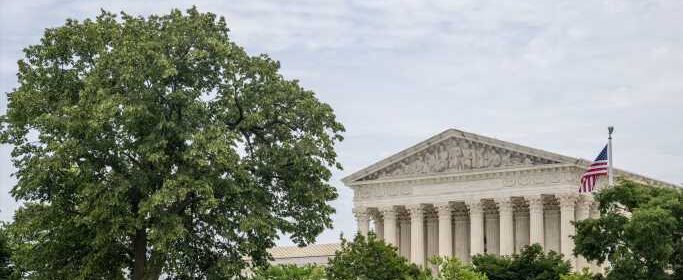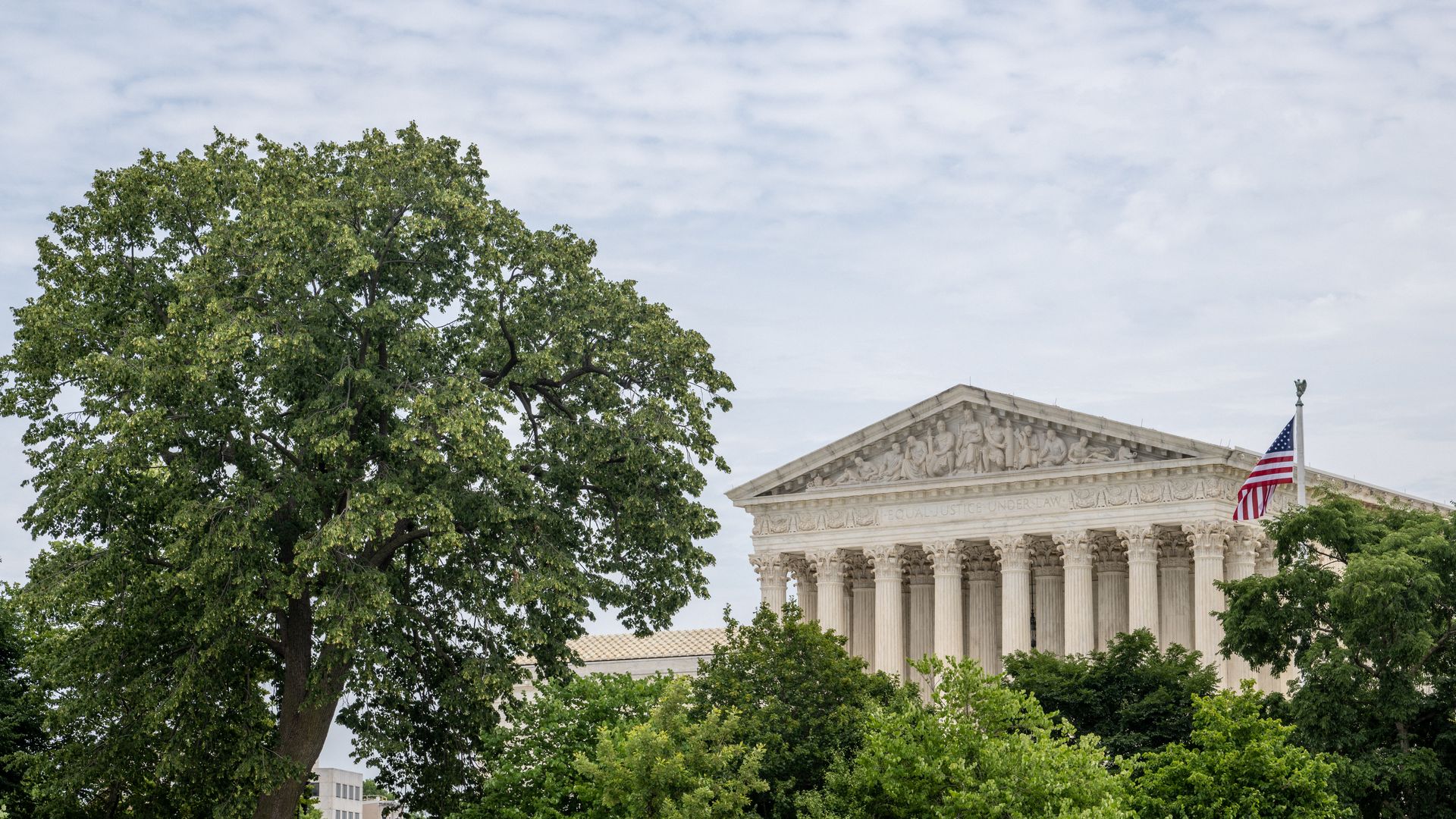Supreme Court strikes down New York's concealed carry gun law

Photo: Brandon Bell/Getty Images
A New York law that requires people applying to get a license to carry a concealed weapon to show that they have "proper cause" to carry a gun violates the Constitution, the Supreme Court ruled Thursday.
Driving the news: The majority opinion, written by Justice Clarence Thomas, says that it is a constitutional right to carry a weapon in public for self-defense purposes.
Details: The New York law prevents "law-abiding citizens with ordinary self-defense needs from exercising their right to keep and bear arms in public," Thomas wrote in the 6-3 ruling.
- The ruling will have major implications for gun control laws across the country as the U.S. also struggles with an epidemic of gun violence.
- Thomas concluded that there are no "historical limitations on the right to bear arms" because no limitations have ever been sent to stop a person from carrying a gun in public if they do so for self-defense.
- "We know of no other constitutional right that an individual may exercise only after demonstrating to government officers some special need. … [I]t is not how the Second Amendment works when it comes to public carry for self-defense."
- The court's three liberal justices — Stephen Breyer, Elena Kagan and Sonya Sotomayor — dissented.
Breyer started his dissent by writing that "[i]n 2020, 45,222 Americans were killed by firearms," and then
- "Many states have tried to address some of the dangers of gun violence just described by passing laws that limit, in various ways, who may purchase, carry, or use firearms of different kinds. The Court today severely burdens States' efforts to do so," Breyer wrote, adding that the decision "rests upon several serious mistakes."
- Breyer called the New York law "a reasonable licensing law to regulate the concealed carriage of handguns in order to keep the people of New York safe."
- Breyer said that the court is not taking into account "important considerations" from a state that is interested in "protecting the safety of its citizens," adding that the majority opinion will have "potentially deadly consequences."
Between the lines: In a concurring opinion with Thomas, Justice Alito questioned Breyer's dissent, saying that the New York law, a gun control legislation, "obviously did not stop" the man who conducted the mass shooting in Buffalo that left 10 people dead.
- Alito specifically attempts to dismiss Breyer's introduction to his dissent, in which he calls attention to how gun violence has increased in the U.S.
- "Does the dissent think that laws like New York's prevent or deter such atrocities?" Alito wrote, referring to the mass shootings that Breyer writes about.
Catch up fast: In New York State Rifle & Pistol Association Inc. v. Bruen, the plaintiffs were two men whose applications were denied because a licensing officer said they failed to show "proper cause" to carry a firearm in public for self-defense reasons.
What they're saying: "We respectfully disagree with the Court’s conclusion that the Second Amendment forbids New York’s reasonable requirement that individuals seeking to carry a concealed handgun must show that they need to do so for self-defense," Justice Department spokesperson Dena Iverson said in a statement.
- "The Department of Justice remains committed to saving innocent lives by enforcing and defending federal firearms laws, partnering with state, local and tribal authorities and using all legally available tools to tackle the epidemic of gun violence plaguing our communities," Iverson added.
What we're watching: Other states like California, Maryland and New Jersey have similar laws to the one that the Supreme Court just struck down.
- The court's opinion could set a precedent to go after those laws.
Don't forget: 25 states "generally allow people to carry concealed weapons in most public spaces without any permit, background check, or safety training at all," according to the Giffords Law Center to Prevent Gun Violence.
Go deeper: Five biggest Supreme Court cases to watch
Source: Read Full Article

